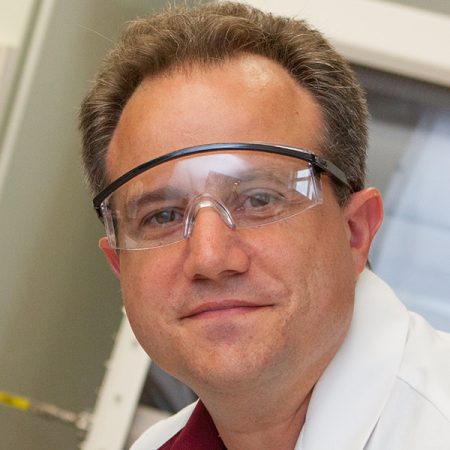
A Florida State University professor has received a major award from the American Chemical Society for his work in nuclear chemistry.
Thomas Albrecht-Schmitt, the Gregory R. Choppin Professor of Chemistry, received the Glenn T. Seaborg Award for outstanding contributions to radiochemistry. He will be presented with the award at the American Chemical Society conference in March 2019.
“I am delighted and humbled by this recognition of years of challenging experiments conducted by dozens of talented students and postdocs on chemistry that many thought was simply not possible,” Albrecht-Schmitt said. “This honor is testament to all of their hard work and creativity and their dedication to pushing the boundaries of chemical studies deeper into the Periodic Table.”
The award comes in recognition of Albrecht-Schmitt’s research at the fringes of the Periodic Table, including studies on plutonium, berkelium and californium. His work on these heavy, radioactive elements showed that their chemistry was far richer than scientists previously thought.
Prior to these studies, scientists believed that though these elements possessed exotic nuclear properties that their chemistry was quite mundane. Instead, it turned out that many unusual properties were observed as the result of relativity starting to alter the behavior of the electrons in ways that no one predicted.
In 2016, Albrecht-Schmitt received a $10 million grant from the U.S. Department of Energy to create a new Energy Frontier Research Center to extend these basic science discoveries into applications with the goal of accelerating scientific efforts needed to support nuclear waste cleanup at Cold War-era sites.
“Many people associate radioactivity solely with the environmental toll from past eras,” Albrecht-Schmitt said. “In fact, these radioactive elements are saving lives through their use in nuclear medicine. Moreover, nuclear energy production is our only method for generating large amounts of energy with a small carbon footprint.”
Albrecht-Schmitt received his doctoral degree from Northwestern University in 1997 and taught at Auburn University and University of Notre Dame before coming to Florida State in 2012. He holds an endowed professorship in honor of the late Gregory R. Choppin, a nuclear chemist who co-discovered the element mendelevium.



